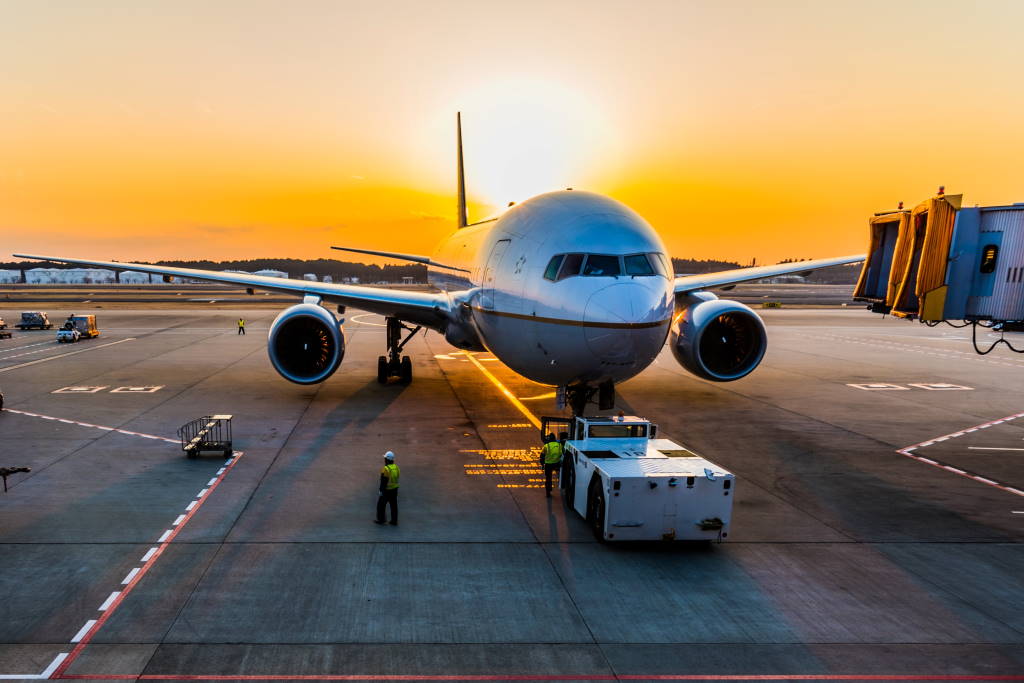Why travel & tourism is wrong to embrace net zero as its climate change response

Sensible and rigorous environmentalism in travel & tourism is desirable, according to Ken Scott. However, the premature pursuit of net zero when the most promising technologies aren’t ready is an unnecessary act of self harm for the industry, he argues.
It’s a “Good Tourism” Insight. [You too can write a “GT” Insight.]
I consider myself a sensible and practical environmentalist. But I want to share with you why I believe net zero is a severely misguided policy. I’m going to lay out my arguments below. I’m going to challenge the orthodoxy.
Let me get my retaliation in first. Yes, I depend on the travel industry for a living. But the truth is, I could probably make more money as a PR professional for the travel sector by going along with the net zero agenda i.e. by not rocking the boat. But I’m not going to. What I’m seeing and hearing on net zero doesn’t add up. Not by a long chalk.
So here we go.
A costly capitulation to the net zero agenda for travel & tourism
Based on the evidence so far, the travel industry seems to have essentially capitulated to the net zero agenda. Without thinking it through and fighting its corner, the global travel industry has, in effect, pledged to take on board a whole lot of extra costs and burdens and be held accountable to a frankly unworkable road map.
The following travel institutions have pledged to support net zero by 2050: World Travel & Tourism Council (WTTC), International Air Transport Association (IATA), United Nations World Tourism Organisation (UNWTO), Air Transport Action Group (ATAG), Association of Asia Pacific Airlines (AAPA), Cruise Lines International Association (CLIA), Sustainable Hospitality Alliance (SHA), and others.
I believe it’s a massive mistake for six reasons:
- With proposed frequent flyer levies, new carbon emission taxes, compulsory carbon offsetting, more expensive biofuels, and the introduction of mandated new technologies such as electric vehicles, tourism will become more expensive. This will hurt long haul travel especially, which will slow tourism’s role in poverty alleviation.
- It commits the travel industry to take on a lot of unnecessary costs that will be passed on to travellers, making travel increasingly the preserve of the rich.
- It exposes the travel industry to greater levels of government interference through taxes, subsidies, levies, restrictions and interventions; in short, a lot of red tape.
- Flight shaming positions travel as an indulgence, rather than a vital component of the global economy.
- The travel industry is a relatively small player in the battle to reduce global CO2 emissions. That battle will mostly be won or lost depending on the national energy policy decisions of coal-dependent China, India, Brazil, and other lesser-developed countries with large and relatively poor populations.
- Net zero targets diminish travel at a time when we need enhanced international understanding and empathy. Travel experiences are a beautiful antidote to stay-at-home isolationism and digital tribalism.
Adopting net zero obliges the travel industry to pay more than its fair share for global warming. For example, aviation (including cargo) is responsible for 1.9% of global greenhouse gas emissions, according to Climate Watch and the World Resources Institute. Shipping (including cargo) is responsible for 1.7%.
Total road transport of all kinds is 11.9%. Therefore, using finger-in-the-wind guesswork, the percentage of road transport pertaining specifically to tourism is miniscule. Let’s say 1% of global total emissions; and that is surely on the high side.
Also see Kevin Phun’s “GT” Insight
“Footprints: What does it mean for travel & tourism to be carbon neutral?”
However, in 2019 the travel industry contributed 10.4% of global GDP, according to the WTTC. And it contributes significantly higher than that in dozens of countries that need it, from Lesotho (13.7%) to the Maldives (75%).
Over the last 30 years or so, the UN and the World Bank have been energetic in promoting travel as a global engine to fight poverty, especially in lesser developed economies. Think of the transformative role of tourism dollars in formerly impoverished countries such as Cambodia, Laos, Myanmar, Nepal, Tunisia, Cuba, and Fiji.
The continued unhindered economic development of those tourism economies and dozens like them are now under partial threat because Western governments and travel organisations are falling under the sway of misplaced net zero orthodoxy.
Also see Geoffrey Lipman’s “GT” Partner message
“CODE RED: SUNx’ 7‑point climate action plan for tourism”
This de facto war against fossil fuel-based travel is wrong, and at the very least premature, at a time when green technology, support infrastructure, and new fuels, such as sustainable aviation fuels, aren’t up to the job of replacing fossil fuels — yet.
Timing is the point.
Green tech transitions take time
When society transitioned from horsepower to steam engines, from steam engines to the internal combustion engines, from propellers to jet engines, it did so without massive government-induced restrictions and burdens being inflicted on the economy.
These successful transitions were beneficial to mankind because each new technology was ready. It was ready to make transport faster and more efficient. It was scalable and therefore ultimately cheaper for the public.
Until now, mankind has benefited from a series of fit-for-purpose technological revolutions. Each one, when it was ready, created genuine value and economic development.
Also see Daniel Rye’s “GT” Insight
“It’s mental: Why remote resorts are resisting renewable energy”
However, in the early 2020s we are simply NOT there yet with biofuel aeroplanes, electric vehicle charging points, solar cruise ships, hydrogen home heating, or heat pumps.
Wind and solar power is by definition intermittent. We simply cannot store electricity from renewable sources in batteries at scale. The technology doesn’t exist. It may be decades away. It may be years away. It may never happen. We simply don’t know.
Furthermore, you know something is wrong when governments don’t want to reveal the eye-watering fiscal costs and physical disruption to ordinary people like you and me in case it destroys support for net zero.
Also see David Gillbanks’ “GT” Insight
“Don’t panic: Opportunity, ingenuity will give us climate-friendly travel”
Society’s commitment, therefore, shouldn’t be to net zero. The commitment should be to massive green research and development.
Artificially forcing us on the road to net zero while the technology isn’t ready is not only obscenely expensive, it’s an operational disaster.
Indeed, on October 4, 2021 when Willie Walsh, the Director General of IATA announced the airline industry’s commitment to net zero by 2050, he did so with a desperate plea for governments to intervene.
“Governments must be active partners in achieving net zero by 2050,” he said. “The costs and investment risks are too high otherwise.”
Walsh even hoped for “new propulsion systems, whether that’s hydrogen powered aircraft, or some other system that we haven’t even dreamed of yet”.
Hope is a desperate strategy. We have to live in the real world.
Furthermore, what if a new technology comes along that makes the existing process of trying to impose aviation biofuels, electric vehicles, and home heat pumps into our lives wholly redundant?
Also see Neville Hargreaves’ “GT” Insight
“With sustainable fuel, is a new era of green air travel possible by 2025?”
All that government-mandated, taxpayer-funded expenditure will have been wasted. This is money that you and I as taxpayers have to stump up. It is money that should be invested in sectors that deliver a much higher societal ROI in the short to medium-term: health, education, infrastructure and, yes, green research and development.
Now, good-faith proponents of net zero will counter: There will be no travel industry in 30 years. We’ll all be on fire/submerged/frozen/or cast out on an apocalyptic landscape like Denzel Washington in The Book of Eli.
Not so.
Over the last 60 years, predictions of climate catastrophe have all been wrong.
Nevertheless, warming is happening. And it is possible, even likely, that man is speeding the process through CO2 emissions.
Also see Nico Nicholas’ “GT” Insight
“What do you do when carbon offsetting is off-putting?”
However, the story of the human race is one of profound ingenuity and adaptation. The Industrial Revolution, which Boris Johnson in effect apologised for during COP26, has powered human flourishing and delivered magnificent outcomes in terms of life expectancy, infant mortality, literacy, crop yields, amount of leisure time, and more.
That revolution is still being played out in developing economies. We shouldn’t hinder it.
A more sensible clean energy road map for travel & tourism
The end game is not ‘Hurrah! Fossil fuels forever!’
No, a more sensible and viable clean energy road map for society and therefore the travel industry would surely be:
- Continue using fossil fuels in the short to medium term to drive the global economy, especially in lesser developed countries.
- At the same time invest in clean energy R&D, a sector in which governments can and should have a major role.
- Move from coal to gas as much as possible. (CO2 emissions from gas are much, much less than from coal. In the transition away from coal, fracking is our friend.)
- Embrace zero-emission nuclear energy for national power grids and/or local city needs (There has only been one — one! — direct fatality from nuclear power (Fukushima) since the Chernobyl disaster, which was a function of Soviet mismanagement allied to poor design and safety standards. Furthermore, we have been storing nuclear waste successfully and easily for over 60 years without incident.)
- (Here’s the leap-in-the-dark bit if R&D goes well) In a few decades’ time start onboarding new green technologies at scale to start replacing fossil fuels in aviation, road transport, manufacturing, home heating and cooling, and other sectors.
The good news is that the world’s population is predicted to peak at around 11 billion by year 2100 and then start falling (as increased prosperity leads to low birth rates).
However, in the early 2020s it is manifestly premature to abandon the fossil fuels which today supply 84% of our global energy needs. Such a move would limit and deny fast-tracked economic growth to billions of people trying to escape poverty.
Also see Tanner C Knorr’s “GT” Insight
“Climate change, COVID-19, and the need for global systemic change”
Developing economies need cheap and reliable energy, not moralising from the West.
So, whether we live in a developed or developing economy, we should all insist that the travel industry doesn’t chuck in the towel on fossil fuels. It would be a huge and unnecessary act of self harm for everyone.
In the meantime, governments and green activists — who I hope are first and foremost humanists — should instead commit to supporting the international travel industry, not crimping it. Remember, tourism turbo charges poor economies.
Also see Jim Butcher’s “GT” Insight
“Why tourism degrowth just won’t do after COVID-19″
And, in an age of increasing mental health challenges, a good holiday can be a perfect antidote to a range of ills. Memories of my one-week family holiday in summer 2019 to Greece, and the prospect of doing it again one day, helped sustain me through the long dark days of COVID restrictions and the deferment of normal life.
Travel must not be turned into a guilty elitist indulgence available only to the rich. That is the sad and very expensive path that WTTC, IATA, UNWTO and others have unwittingly put us on.
Let’s wake up and travel a better road.
What do you think? Share a short anecdote or comment below. Or write a deeper “GT” Insight. The “Good Tourism” Blog welcomes diversity of opinion and perspective about travel & tourism because travel & tourism is everyone’s business.
Featured image (top of post): Will air travel become an elitist activity only undertaken by the very wealthy? Pic: VOO QQQ (CC0) via Unsplash.
About the author

Ken Scott lived in Thailand for 28 years working as a travel journalist before joining the Pacific Asia Travel Association HQ in Bangkok and eventually leading its communications department. In 2006, he left PATA to set up ScottAsia Communications, a travel industry communications firm. Now based in the UK, with an office in Bangkok, Ken continues to serve a variety of travel industry clients, most with an Asia Pacific connection. He is also a co-founder of “GT” Partner Worldwide Travel Alliance. Passionate about promoting sensible environmentalism rather than climate alarmism, Ken launched People’s Energy Blog in 2021.





